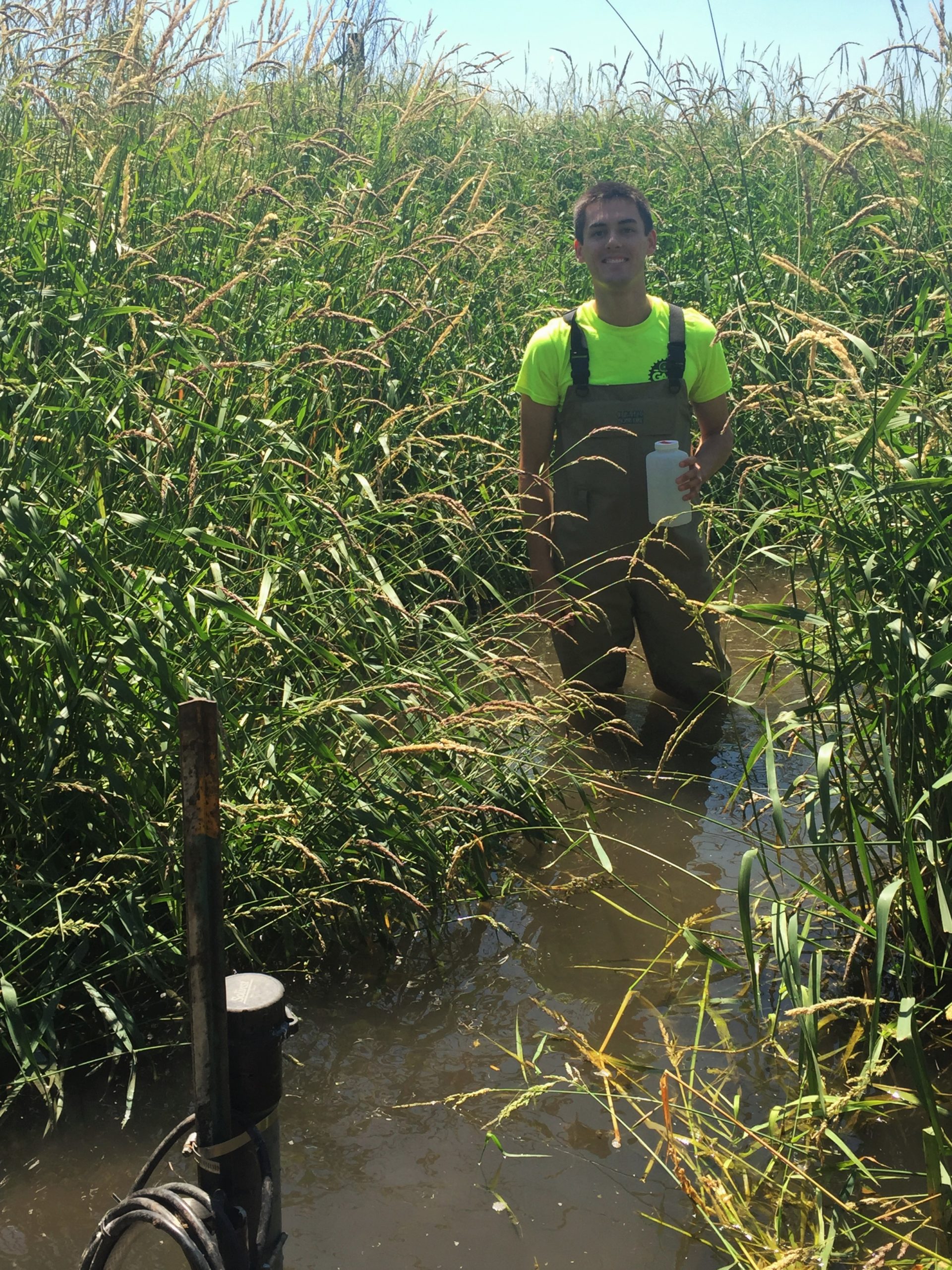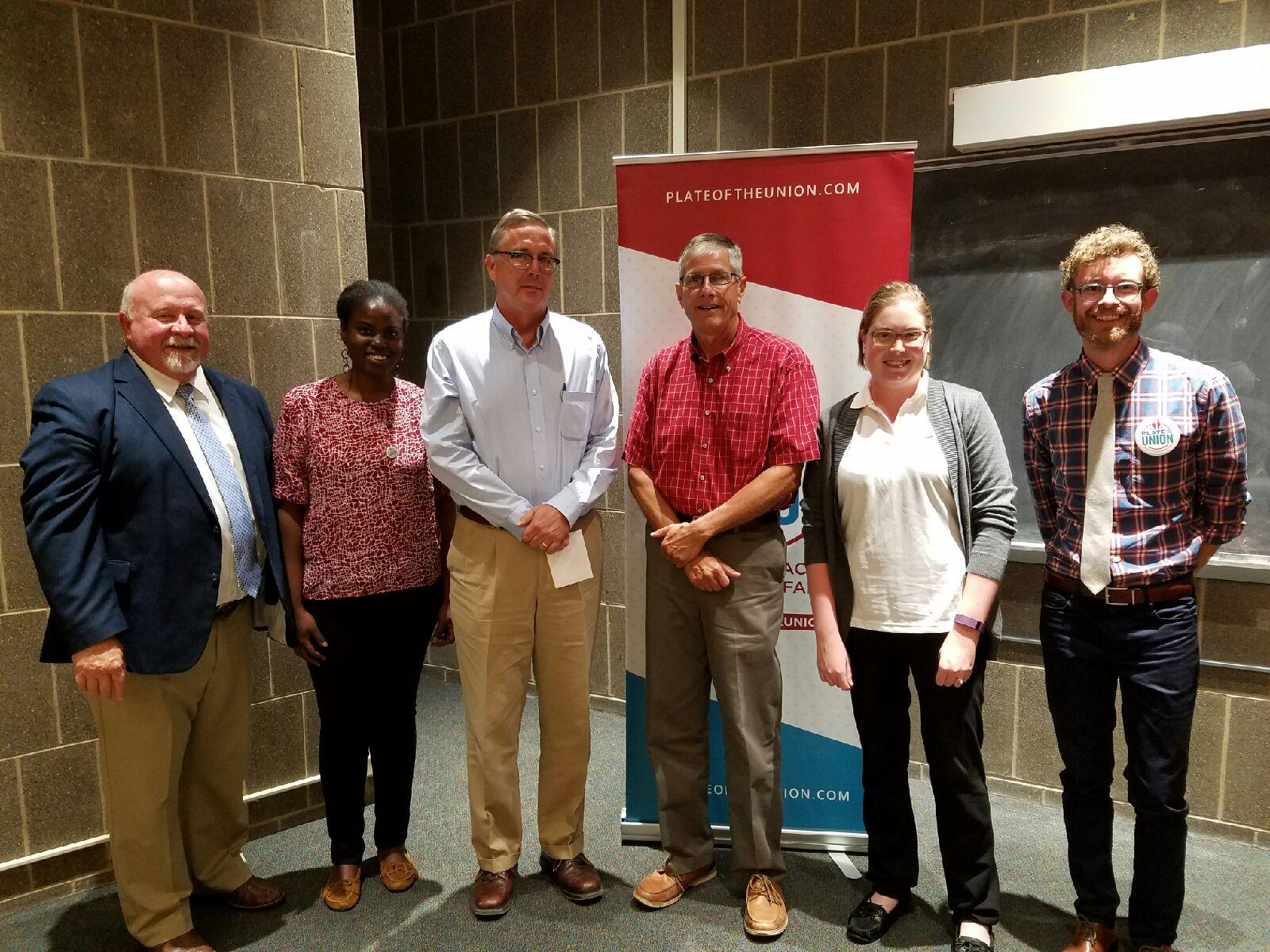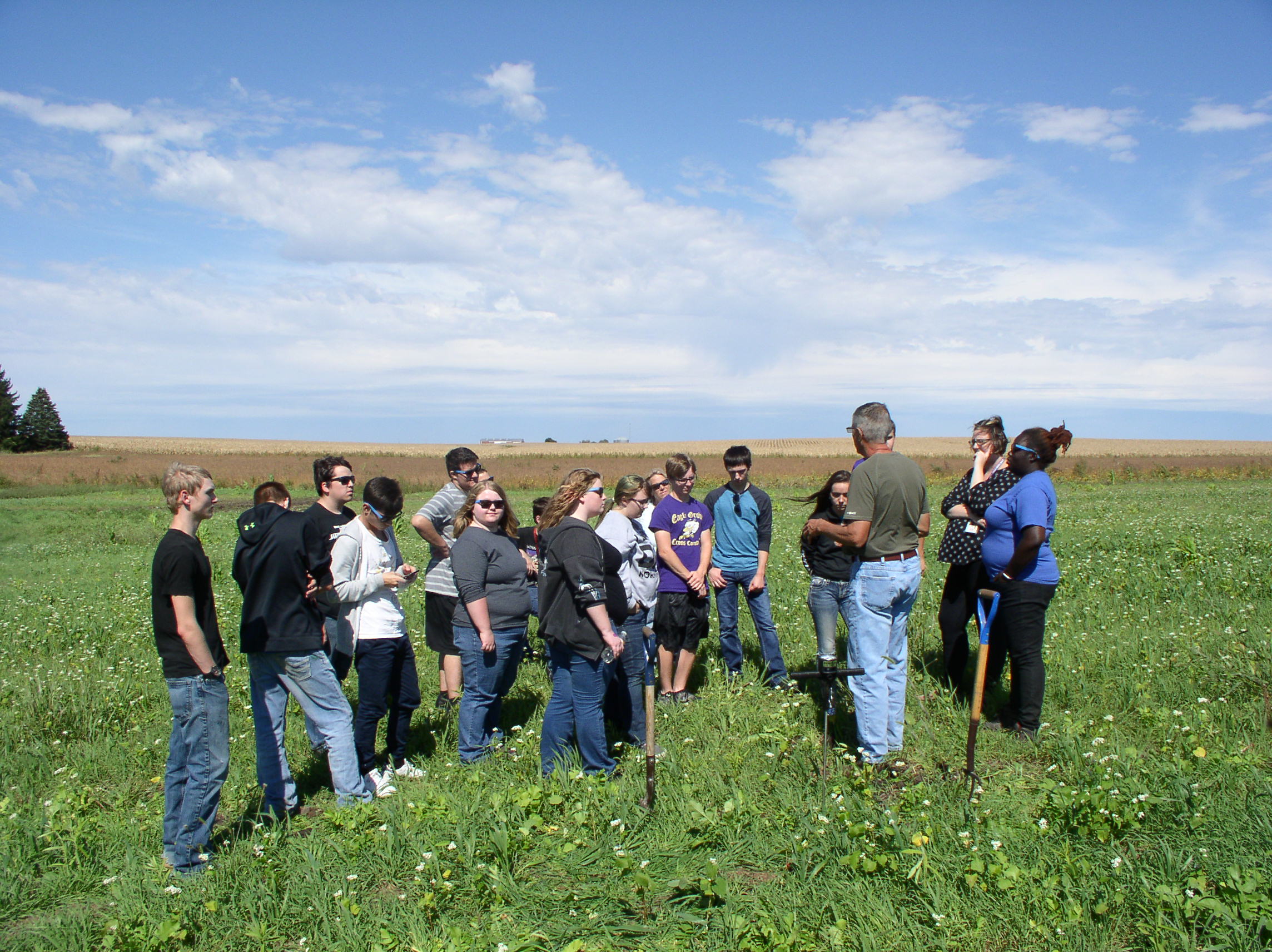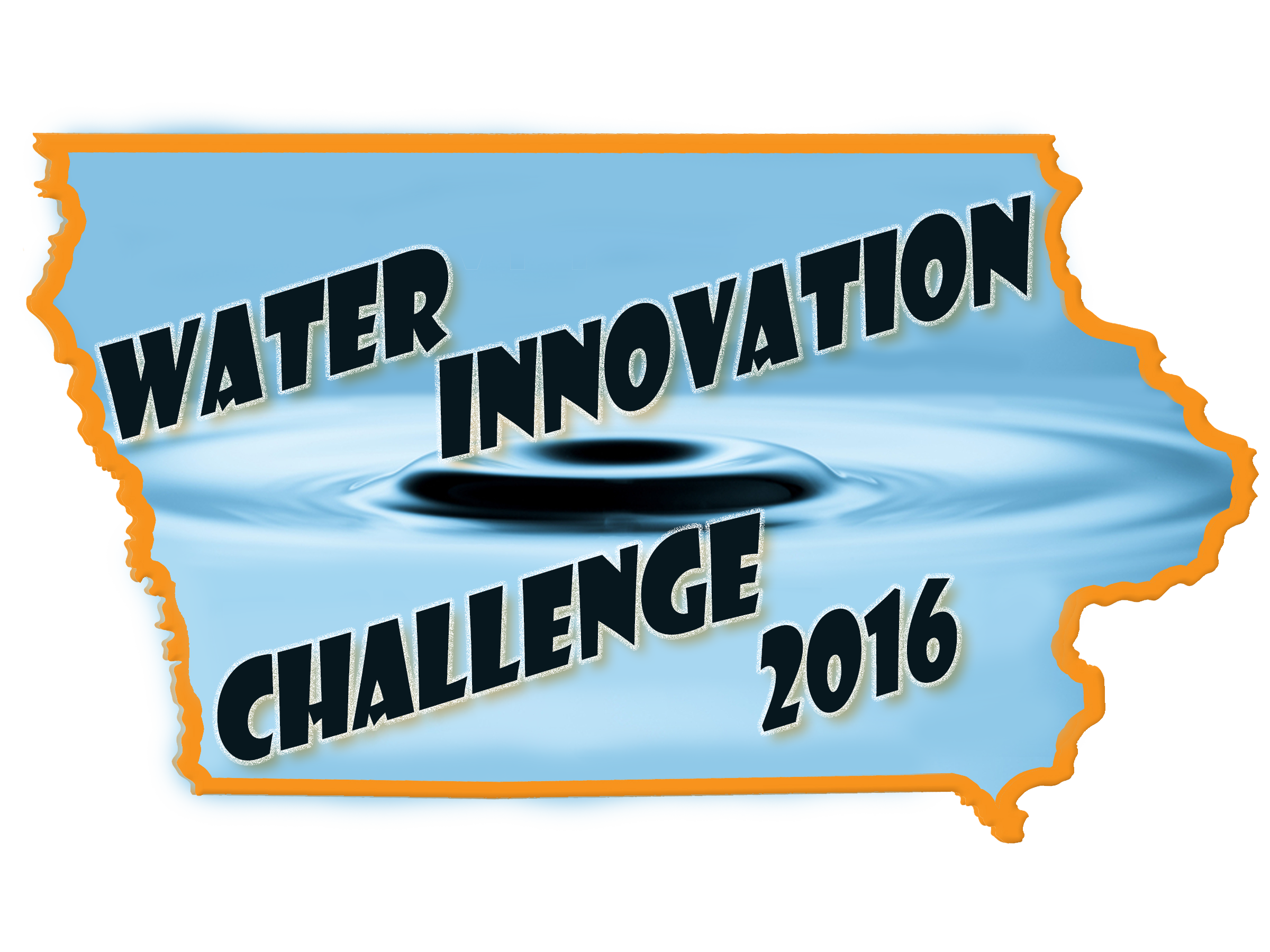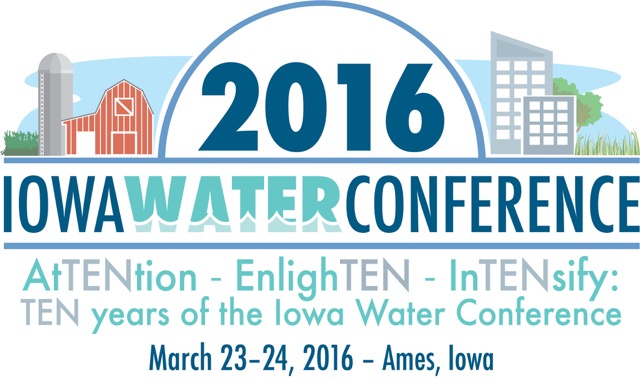Without water, there would be no life. Water serves as a medium in which we can grow healthy plants, innovate in industry, and play in the outdoors. From supporting our natural habitats to running through our kitchen faucets, it allows us to flourish as a community of living beings.
Continue readingMonitoring in the Black Hawk Lake Watershed
Black Hawk Lake is an important recreational resource in Iowa. Recently, the lake has had high levels of algae and turbidity. High levels of algae is problematic because it inhibits the natural function of aquatic ecosystems. Turbidity, or the suspension of particles within a water body, also has a negative impact on water quality. The cloudiness within water systems can affect light penetration and can also reduce the volume water systems can hold, and therefore, reduce the space that aquatic habitat can live in. With support from Iowa Department of Natural Resources and other funding sources, such as the Iowa Water Center, we are monitoring the water quality at three sites in the Black Hawk Lake watershed. This is with the goal of determining the effectiveness of strategies used to address the algae and turbidity problems.
Continue readingPlate of the Union Water Quality Panel Discussion
This year, the Iowa State University Sustainable Agriculture Student Association (SASA) received a national grant from the Plate of the Union Campus Challenge. Part of this sponsorship included hosting a panel on water quality issues
Continue readingEagle Grove Students Learn about Conservation Practices on the Farm
Eagle Grove, IA – On September 20th, the Earth Science class from the Eagle Grove High School took a field trip to a farm operated by Tim Smith. Smith, a White House Champion of Change for Sustainable and Climate-Smart Agriculture, showed how he incorporates cover crops, strip tillage, and a bioreactor into his farm operation. Students also traveled 12 miles north of his farm to tour a wetland CREP site. Tim, along with Bruce Voigts and Tas Stephen from the Natural Resources Conservation Service (NRCS) in the Clarion USDA office, discussed how the benefits these practices add to soil health and water quality.
Continue readingA Weekend of Algae
Over September 9-13, our new ISU PhD student Tania Leung and I traveled to northwest Iowa to the Lakeside Laboratory. Our goals at Lakeside were twofold: to collect preliminary data on our Iowa Water Center funded project in order to plan our field campaign for summer 2017, and
to participate in the Phycological Research Consortium (PRC).
Mixing entrepreneurs with H2O for a solution
Earlier this year, IWC Director Rick Cruse and Associate Director Melissa Miller met with staff from the Agricultural Entrepreneurship Initiative (AEI) at Iowa State University about an exciting new event idea. AEI team members have spent the last several months working tirelessly to organize Water Innovation Challenge 2016, an open community creative event that will join students, industry experts, scientists, entrepreneurs and YOU to collaborate and co-create new ideas that change the way we think about, manage, and use water in our state.
Details:
Waterpalooza 2016
Sept 1 & 2 (must be present both days)
Scheman Building, Iowa State University campus, Ames
$50 registration (FREE for current students)
Over $15,000 awarded in prizes
The event is facilitated by Dr. Jeffrey Stamp, a professional creative and concept developer who was the inventor of the Frito-Lay Baked! Lays® Potato Crisps. Dr. Stamp is a native of Sheldon, Iowa and leads creative innovation sessions worldwide for corporations, universities, and start-ups.
We at IWC are delighted to promote this event that will equip a variety of stakeholder with entrepreneurial skills all while thinking big and sharing ideas that will creatively address water quality issues in Iowa.
For guidelines, event schedule, and registration information, please visit the event’s webpage. Questions can be directed to Amanda Blair at acblair@iastate.edu or 515.294.4945. This event is sponsored by the Iowa Farm Bureau Federation.
Iowa Groundwater Association Conference March 31
The Iowa Water Conference isn’t the only learning opportunity around these here parts – make sure you sign up to attend the Iowa Groundwater Association‘s Spring Conference. Registration is due in advance, so hop on over to their website to register – $75/members, $100/non-members, and $25/students until 3/24.
The details:
Thursday, March 31, 2016
DMACC Conference Center Auditorium – 600 N. 2nd Ave. West, Newton, Iowa
IGWA is honored to present this exciting line-up of speakers for our spring conference! Please join us in learning about the Flint Water Study, the DMWW lawsuit, avian influenza, antibiotic resistant bacteria, arsenic, radionuclides, and source water protection!
CEU’s are available for Groundwater Professionals (2), Certified Well Contractors (6), and Water Treatment Operators (0.5).
Presentations:
- Detection of Avian Influenza A in Groundwater: Results from the 2015 HPAI Outbreak – Laura Hubbard, USGS
- Protecting Source Waters in Agricultural Watersheds – Bill Stowe, Des Moines Water Works
- Flint Water Study – Anurag Mantha, Virginia Tech
- Fate and Transport of Antibiotic Resistant Bacteria and Resistance Genes in Tile Drained Agricultural Fields Receiving Swine Manure Application Over Four Years – Elizabeth Luby, Iowa State University
- Arsenic and Old Wells: Reducing Contamination Risks for Private Well Users – Sophia Walsh, Cerro Gordo County Dept. of Public Health
- Radionuclides in Alluvial and Shallow Bedrock Aquifers – Dustin May, State Hygienic Laboratory/University of Iowa
- Hydrogeologic Reconnaissance and Characterization for a Groundwater Source of Supply: Fort Madison, Iowa Case Study – Greg Brennan, HR Green
The Elixir of Life: An Invitation
Guest blog by Jodi Enos-Berlage, Biology Professor at Luther College in Decorah, Iowa
Water—one of the simplest molecules on earth, is the basis for all life, and this requirement is non-negotiable. The great mystery then, is how we humans have allowed this sacred molecule to become the most polluted substance on earth, and what we should do to solve this problem.
Six years ago, an ISU Extension representative called me to ask if I would be interested in leading a water quality monitoring effort in an impaired waterhshed in Northeast Iowa. I was a scientist and an educator who grew up on a farm. I had read about the many water quality problems in Iowa. In fact, I lived in this impaired watershed, and knew my farm might be contributing to the problem. I said yes.
What began as project to collect water quality data evolved into something much bigger—sharing data and forming relationships with local farmers, using that data to secure funding for water quality improvement practices, developing a three-week, water-focused laboratory in my microbiology course, six years of water quality research involving over 15 undergraduate students, eight presentations and publications, and finally, an amazing collaboration with a dancer, a musician, and a cinematographer at Luther College that resulted in Body of Water. I now invite you to experience this unique work.
Body of Water is an original, unique performance that intermixes dance, music and video components. Art and science are intentionally interwoven to create an end product more powerful than the sum of its parts. The overall goal was to reveal the sacredness of this essential molecule and elixir of life. No one in our group was aware of a precedent for this type of performance, so it was a real experiment. While the videos, many of which I narrate, tell the story of the essentialness of water for life, its geographic connectivity, its chemistry and biology, and the major pollutants that impact both surface and groundwater, the dancers and musicians produce complementary and novel movements that provide the basis for emotional and human connection. We spent hours interviewing various stakeholders about water–this informed the performance, and some of their visual and audio clips are included. Local and state water issues, both agricultural and urban, are highlighted. The reverence that Native American populations have consistently and powerfully exhibited for this precious resource also inspired the work.
Notably, the purpose of the performance was not to take any particular position, e.g., a regulatory or voluntary approach, mainly because no matter where someone might stand on this spectrum, it has a divisive effect. Our goal was to create a performance that would unite, through an informational, and perhaps more importantly, emotional and spiritual experience. Based on the audience responses at the multiple sold out shows at Luther College, and at the subsequent Grinnell Summer Arts Festival, we are humbled by the outcome. The audience we attracted at Luther was one of the most diverse ever in terms of a performance, and included members of agricultural, urban, and conservation groups, scientists and artists, educators and students, and community members and leaders. It is our sincere hope that the performance at ISU will attract a similarly diverse audience.
We are incredibly excited to be partnering with a group of Ames High School students—the Bluestem Institute—for the pre-performance, as the creative work of our young people provides the greatest inspiration. These students will be presenting the beautiful products of their year-long research and service learning project focused on water. We have much to learn from them.
Ultimately, we acknowledge Body of Water as a prayer to return to a right relationship with the earth—recognizing that our own success is not dependent our abilities to control or dominate, but on our abilities to harmonize and see ourselves as a part. In this spirit, we are freely contributing our energies to spread this message. There is no charge for admission and we hope you will be inspired to attend.
Body of Water will be presented as a part of Art of Water 2016 on March 23 at CY Stephens Auditorium in Ames, Iowa
Registration open for 2016 Iowa Water Conference
It’s here! It’s perhaps one of the best days of the year over here at the Iowa Water Center! Registration has opened for the 2016 Iowa Water Conference. There is an overwhelming amount of information on the conference website, so scurry over there and take your time checking everything out. Some of the highlights:
- $150 regular/$75 student registration – ends March 11. Add $25 for late registration.
- $50 optional workshop – “The Psychology of Sustainable Behavior: A skill building workshop to support voluntary behavior change”
- $500 commercial exhibits/$50 nonprofit exhibits – commercial exhibits include one registration
- Poster registration is online again this year (there’s a big red button on the bottom to start registration)
Have any questions about this year’s conference? Call Melissa Miller at 515-294-7467 or send an email to millerms@iastate.edu. Can’t wait to see you in March!
P.S. If you see anyone from any of the following organizations, give them a pat on the back for their hard work in helping plan this year’s conference: Iowa Association of Municipal Utilities, Iowa Department of Agriculture and Land Stewardship, Iowa Department of Natural Resources, Iowa Flood Center, Iowa Floodplain and Stormwater Management Association, Iowa State University Extension and Outreach, Iowa Storm Water Education Program, Leopold Center for Sustainable Agriculture, Luther College, Natural Resources Conservation Service, Trees Forever and the U.S. Geological Survey — Iowa Water Science Center.
The Fifth [Business] Day of Christmas: The Next Generation of Water Professionals
On the fifth [business] day of Christmas, the Iowa Water Center gave to me…a description of the breakout session The Next Generation of Water Professionals.
The following presentations will take place at the Iowa Water Conference in Ames on the afternoon of Wednesday, March 23, 2016. Registration for the conference will open in January.
This breakout session is built a little differently than the other tracks because it IS different: The Next Generation of Water Professionals is being planned by students from the University of Iowa and Iowa State University. It’s designed by the students with students in mind, but everyone at the conference is welcome to attend. The students have four, 30 minute blocks just like everyone else, but they’re mainly focusing on two topics: climate and communicating science.
The session will be set up to have Christopher J. Anderson from Iowa State University give a presentation on climate science, and following this presentation, an interactive and engaging discussion on the impact of climate change predictions on the future of water research and water management. After the break, the students will hear from Pat Boddy of RDG Planning and Design as well as Dr. Dara Wald from Iowa State University’s Greenlee School of Journalism as part of a panel discussion on communicating science issues to the general public, particularly focused on climate and sustainability.
This session is a new feature of the Iowa Water Conference, and we’re excited to offer a venue for college students interested in water to meet and network. If you’re a student and are interested in learning more about this session and the other students attending the conference, contact Melissa Miller at millerms@iastate.edu.
